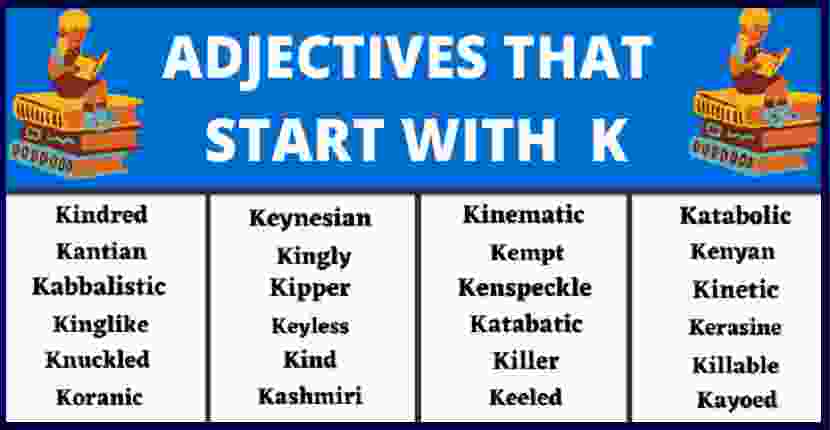Modal Auxiliaries:-आज SSCGK आपसे Modal Auxiliaries के बारे में विस्तार से चर्चा करेंगे।
इससे पहली पोस्ट में आप Articles के बारे में विस्तार से पढ़ चुके हैं।
MODAL AUXILIARIES:-
“Modals are called that auxiliaries always used with the first form of the main verb.”
There are two types of Auxiliaries:-
1.Primary Auxiliaries-
(is,am,are,was,were,has,have,had,do,does,did)
2.Modal Auxiliaries-
(Shall, should,will, would, can, could, may, might, must, ought to,have to,used to,need,dare)
In English grammar shall, should, will, would, can, could, may, might, must, have to, am to, ought to, used to, need, dare etc. helping verbs/auxiliaries are called modals.
These helping verbs cannot be used as a main verb.
These helping verbs do not change according to number and gender.
We cannot use to before these helping verbs. Before these modal auxiliary (helping verbs) main verbs first form is always used.
The Use of Modals:-
No.1.-Will और Shall का प्रयोग:-
1.Will का प्रयोग–
(1)भविष्य की घटना का साधारण रूप में वर्णन करने के लिए 2nd तथा 3rd Person के साथ किया जाता है।
(2) भविष्य संबंधी आदेश, प्रण, निश्चय, धमकी आदि का वर्णन करने के लिए 2nd तथा 3rd Person के साथ shall का प्रयोग किया जाता है।
Examples:-
Deepu will finish han work quickly.
She will not be able to come.
I will return your book without any problem.
You shall be punished for your misconduct.
Dheeraj shall not live in in my house any longer.
2.Shall का प्रयोग–
(1)भविष्य की घटना का साधारण रूप में वर्णन करने के लिए 1st Person के साथ किया जाता है।
(2)भविष्य संबंधी आदेश, उद्देश्य, प्रण, निश्चय, धमकी आदि का वर्णन करने के लिए 1st Person के साथ will का प्रयोग किया जाता है।
Examples:-
I shall finish my lunch quickly.
I shall finish my homework quickly.
We will go to Kolkata now.
I will donate blood in this camp.
Modal Auxiliaries:-
No.2.-Would तथा Should का प्रयोग:-
Would का प्रयोग शर्त वाचक ,प्रार्थना वाचक तथा Will की Past form के साथ में किया जाता है ।
Examples:-
Raju told me that he would come.
The doctor knew that the patient would die.
Would you close the door?
Would you do this for me?
Tamanna would pass if he worked hard.
Should का प्रयोग नैतिक उत्तरदायित्व का भाव होना, उपदेश का भाव होना, संभावना होना, shall की past form आदि स्थितियों में किया जाता है।
Examples:-
You should give up drinking.
Jyoti should be here by now.
Srishti told me that I should pass.
Deepu should do her duty.
Modal Auxiliaries:-
No.3.- Can, could तथा should का प्रयोग:-
- Can का प्रयोग योग्यता होना इजाजत होना, संभावना होना, Present continuous की जगह आदि स्थितियों में किया जाता है।
Examples:-
Tannu can dance very well.
You can go to school now.
Sneha can hear People talking.
It can happen to anyone.
- Could का प्रयोग प्रार्थना का भाव, संभावना होना, शर्त की स्थिति होना, can की past form आदि स्थितियों में किया जाता है।
Examples:-
Could you tell me the real time.
Could you bring me a glass of milk.
One of the thieves escaped yesterday. He could be anywhere now.
She said that I could go.
She could come to me anytime she liked.
I could lift this bucket.
I could buy a new dress.
Modal Auxiliaries:-
No.4.-May तथा Might का प्रयोग:-
- May का प्रयोग अनुमति या इजाजत लेने या देने हेतु, संभावना होना, प्रार्थना या इच्छा होने का भाव होना आदि स्थितियों में किया जाता है।
Examples:-
May I come in, sir ?
You may go now.
Her statement may be true.
May he live long!
May our nation prosper.
- Might का प्रयोग भविष्य की किसी संभावना का होना, इजाजत होना, may की past form होना आदि स्थितियों में किया जाता है।
Examples:-
Ram said that I might go.
Roshni thought that he might help her.
Tinku might pass this year.
Raunak might reach here by evening.
Might I have your dress.
You might do me a favour.
Note:-May की तुलना में might में अधिक झिझक और विनम्रता का भाव होता है।
Modal Auxiliaries:-
No.5.- Must, Have to तथा Had to का प्रयोग:-
- Must का प्रयोग संभावना होना, मजबूरी का भाव होना, उपदेश का भाव होना, अति आवश्यक होने का भाव होना आदि स्थितियों में किया जाता है।
Examples:-
Mamta must consult some good lawyer.
He must work hard this year to get success.
Anil must be back by evening.
All the students must bring their books daily.
All the students must do their homework daily.
The baby must be hungry.
You must have made some big mistake.
You must clear your account before leaving.
- Have to का प्रयोग मजबूरी का भाव होना अति आवश्यक होने का भाव होना आदि स्थितियों में किया जाता है।
Examples:-
I have to to go there now.
I have to do this work for the welfare of the people.
You have to go now.
The selected candidates have to appear for an interview.
- Had to का प्रयोग मजबूरी का भाव होना अति आवश्यक होने का भाव होना आदि स्थितियों में किया जाता है।
Examples:-
Harjeet had to go to Gwalior.
I had to go there.
He had to to pray for him.
He had to wait for him.
Modal Auxiliaries:-
No.6.- Ought to तथा Used to का प्रयोग :-
Ought to का प्रयोग नैतिक उत्तरदायित्व होना, वांछित संभावना होना आदि स्थितियों में किया जाता है।
Examples:-
Sneha ought to to win the race this time.
Kanaklata ought to build a new house.
There ought to be some more taxis.
Muskan has worked hard. She ought to get good marks.
She ought to respect her elders.
You ought to have helped the poor.
This book is very interesting.You ought to read this book.
Used to का प्रयोग भूतकाल के संदर्भ में किसी आदत या प्राय: होने वाली क्रिया को व्यक्त करने के लिए किया जाता है।
Examples:-
Mohan used to live here.
Sohan never used to live here.
Jyoti used to come to my house every evening.
Lucky never used to tell a lie.
The villagers used to consult me on all matters.
Used she to live there?
Modal Auxiliaries:-
No.7.-Need का प्रयोग
Need का प्रयोग किसी मनाही या किसी संदेह को प्रभावशाली ढंग से व्यक्त करने के लिए किया जाता है। साधारण वाक्यों में Need के साथ to का प्रयोग किया जाता है जबकि निषेधात्मक एवं प्रश्नवाचक वाक्यों में Need के साथ to का प्रयोग नहीं किया जाता है।
Examples:-
Need Deepu go there now?
You did not worry any more.
Roshni needs to go now.
Does she need to go now?
I need not go there.
Need Harjeet do any work.
No,he need not do any work.
No.8.- Dare का प्रयोग:-
Dare का प्रयोग निषेधात्मक वाक्यों, प्रश्नवाचक वाक्यों व संदेहवाचक वाक्यों में किया जाता है।
जिन वाक्यों में hardly, never, no one, nobody आदि शब्दों का प्रयोग किया गया हो, तो उनमें भी Dare का प्रयोग किया जाता है।
Examples:-
Dare she come to my house?
She will hardly dare go there again.
Shambhu dare not fight with me.
No body dared ask her about her intentions.
I wonder whether she dare try.
She dare not ask for a rise for fear of losing her job.











